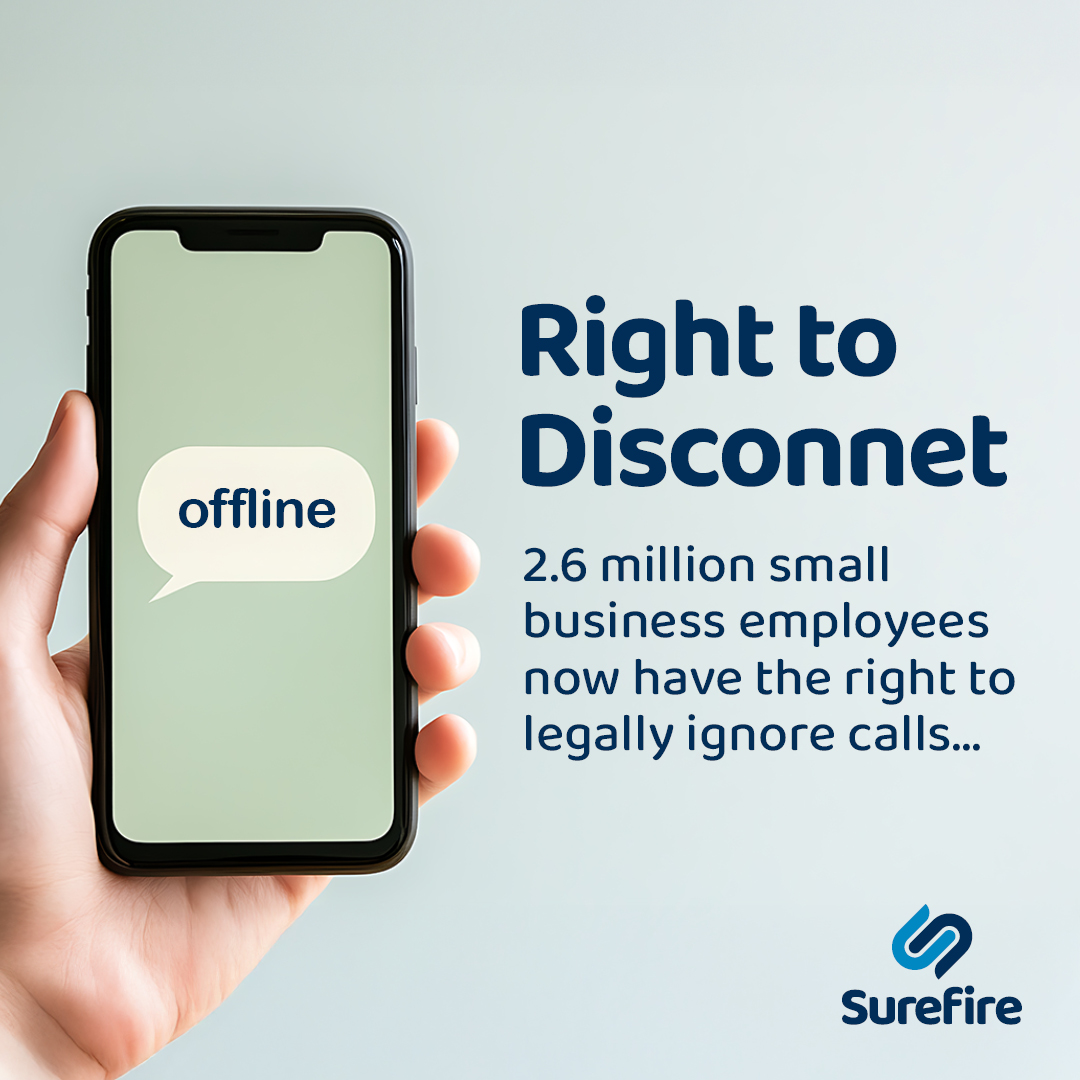
Every small business owner in WA just got a wakeup call. As of Monday, your employees can legally turn their backs on calls and texts after they have knocked off from work. Fair Work just announced that employees working for companies with less than 15 staff now have the legal right to ignore your calls, emails, and texts after hours.
Before you panic, this doesn’t mean your team can suddenly ghost you whenever they feel like it. But it does mean the rules of engagement have changed, and smart business owners need to understand what this means for their operations and their insurance needs.
The right to disconnect laws were already in place for bigger companies since last year. Now they’re hitting small businesses too. Your employees can legally refuse to monitor, read, or respond to work contact outside their normal hours unless refusing would be unreasonable.
Think of it like a workplace boundary that finally has some legal teeth behind it. Your staff don’t have to be glued to their phones 24/7 anymore, but there are still times when they might need to pick up. For WA businesses, this creates some unique challenges. Mining services companies managing FIFO workers across different time zones, tourism operators in Margaret River dealing with weekend bookings, or agricultural businesses in the Wheatbelt coordinating seasonal harvests all need to think carefully about how these new rules apply to their operations.
The law isn’t black and white here, which is probably good news for business owners. Whether your employee can reasonably ignore you depends on several factors:
The key word everyone keeps using is “unreasonable.” If your employee refuses contact unreasonably, they could face consequences. But if you’re constantly badgering staff about non urgent matters at 9pm on weekends, you might find yourself facing a Fair Work dispute.
While everyone’s talking about the right to disconnect, another change happened on the same day that affects many WA businesses. Casual employees who’ve worked for you for at least 12 months can now ask to become permanent staff if they believe they’re no longer truly casual.
This creates additional insurance considerations around wrongful dismissal and discrimination claims if you handle these requests poorly.
Before we dive into the details, let’s address the elephant in the room that most business advisors won’t mention. These workplace changes create fresh insurance risks that could hit your bottom line hard if you’re not prepared.

The smart money is on getting ahead of both the legal requirements AND the insurance implications before problems develop.
Fair Work isn’t trying to make your life harder. They’re actually encouraging everyone to have grown up conversations about when and how after hours contact works in your business.

Now that you understand the risks, here’s how to protect your business properly.
Review your current policies with your broker. The standard small business package you bought three years ago probably doesn’t account for right to disconnect disputes or casual conversion claims.
Consider additional Employment Practices coverage if you don’t already have it. This isn’t just about big corporations anymore – small businesses face the same legal risks when workplace laws change.
Update your Professional Indemnity limits if your business relies on after hours availability for client service. You need coverage that reflects the new reality of limited staff contact options.
These changes aren’t about making business harder to run. They’re about creating clearer boundaries that actually benefit everyone when handled properly. Happy employees are more productive employees, and clear expectations reduce workplace disputes.
The smart move is to get ahead of this rather than waiting for problems to develop. Have the conversations with your team, review your insurance coverage, and make sure you’re protected against the new risks these laws create.
Remember, the Fair Work Commission can now make orders about right to disconnect disputes. That means real legal consequences for getting this wrong, but also clear processes for resolving issues when they arise.
For Perth metro and regional WA businesses, this is just another reminder that staying current with workplace laws and insurance coverage isn’t optional anymore. The landscape keeps changing, and the businesses that adapt smartly are the ones that thrive.
Need help reviewing your business insurance coverage in light of these workplace changes?
Surefire Insurance Brokers can help you understand how the right to disconnect laws might affect your existing policies and what additional coverage you might need.
Contact us for a comprehensive review tailored to your WA business.
References:
https://www.fairwork.gov.au/employment-conditions/hours-of-work-breaks-and-rosters/right-to-disconnect
https://www.fwc.gov.au/about-us/news-and-media/news/new-rules-small-businesses-26-august
https://www.smallbusiness.wa.gov.au/blog/how-will-right-disconnect-laws-affect-small-businesses
https://www.cyberdaily.au/government/12552-employees-of-aussie-small-businesses-now-have-right-to-disconnect
https://theconversation.com/5-million-small-business-employees-now-have-a-right-to-disconnect-from-work-unless-its-unreasonable-what-does-that-mean-263799
Contact us today for a detailed consultation. Our team is ready to provide tailored solutions that match the unique needs of your business.
Surefire Insurance Brokers Pty Ltd | ABN 33 664 956 567 | AFSL 554324
General Advice Warning
The information contained within the website is of a general nature only. Whilst every care has been taken to ensure the accuracy of the material, Surefire Insurance Brokers Pty Ltd will bear no responsibility or liability for any action taken by any party on the purported basis of information contained herein. Users should satisfy themselves of the appropriateness of the information to their relevant circumstances before taking any action.
© 2025 Surefire Insurance Brokers | Powered By FocusNet